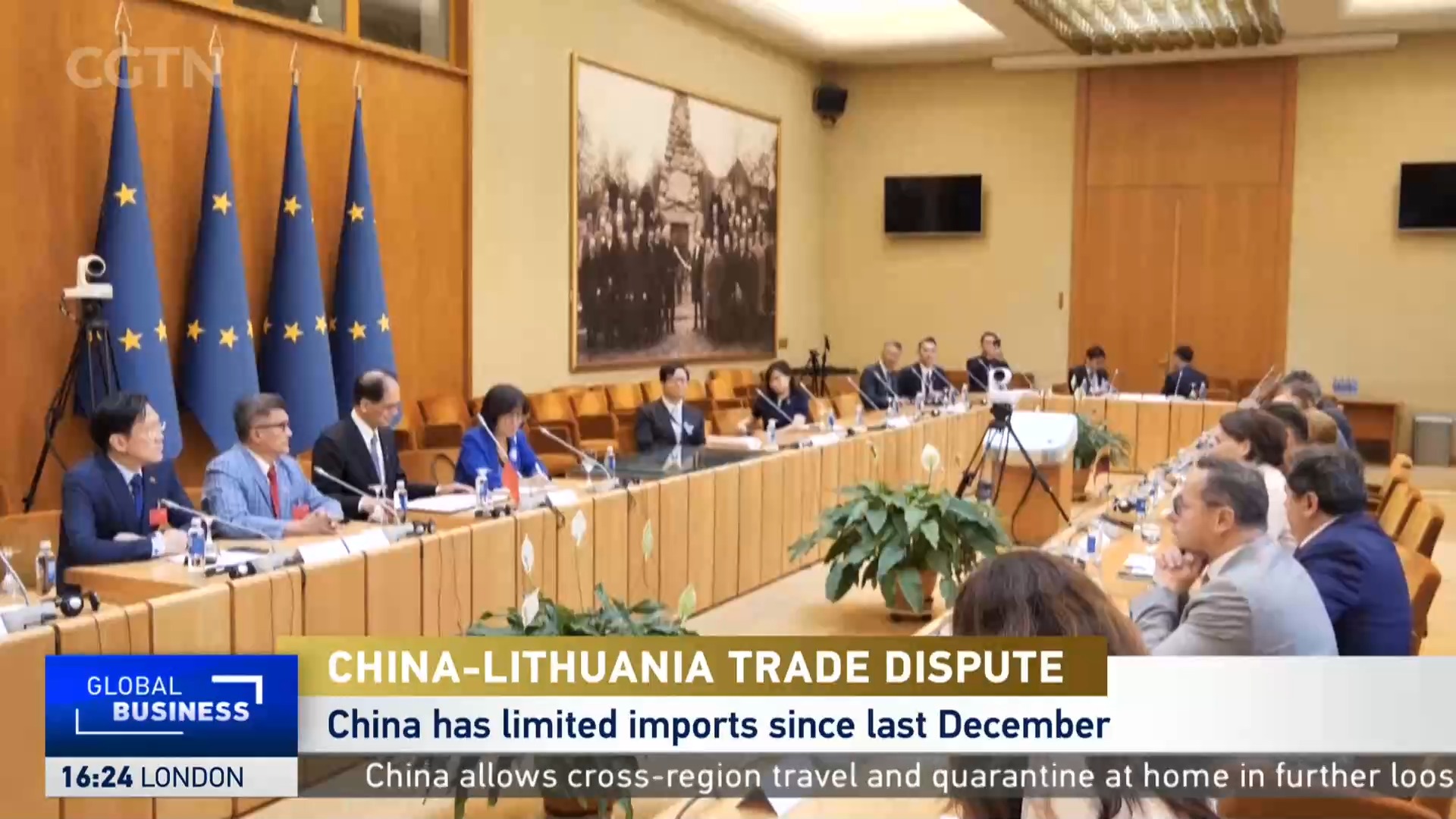01:35

The European Union (EU) has asked the World Trade Organisation (WTO) to weigh in on a trade dispute between China and Lithuania.
The spat dates back to December 2021, when Beijing decided to apply a number of trade restrictions on Lithuanian imports and EU imports of Lithuanian origin.
What restrictions did China apply and why?
Beijing applied the restrictions after Lithuania allowed Taiwan to open a de facto embassy in Vilnius.
China then put restrictions on Lithuanian and EU trade, reducing Lithuania-China trade by 80 percent in the past year.
Beijing has also limited companies that hold European high-tech patents to access European courts to protect their intellectual property – a move which will hit Lithuania's budding tech sector.

Chinese President Xi Jinping with visiting President of the European Council Charles Michel at the Great Hall of the People in Beijing, capital of China, December 1, 2022. /Xinhua
Chinese President Xi Jinping with visiting President of the European Council Charles Michel at the Great Hall of the People in Beijing, capital of China, December 1, 2022. /Xinhua
What has the EU said?
The EU has said the restrictions do not comply with WTO rules and described them as "discriminatory," "coercive" and "highly damaging."
Valdis Drombovskis, EU Commissioner for trade, said that "China is a major trading partner for the EU, which brings clear economic benefits to both sides. Good partners treat each other with respect and should adhere to fair play.
READ MORE
Spanish police raid Europe's drug 'super cartel'
The family with six generations of UK-China trading
China's forgotten heroes
"It is therefore our duty to stand up for our rights when China violates global trade rules or subjects an EU Member State to economic coercion, also affecting our single market."
The EU's view is that the Chinese measures are inconsistent with the WTO Agreement on Trade-Related Aspects of Intellectual Property Rights (TRIPS).
What was China's response?
Beijing has said that it regretted the EU's decision and that China would handle the matter in line with the WTO's dispute-settlement procedures and would "resolutely safeguard its legitimate rights and interests."
The primary reason for China to impose the sanction is that by allowing a diplomatic office in its country, Lithuania effectively treats Taiwan as an independent state. This is against the one-China policy, and China has always reiterated that Taiwan is part of Chinese sovereignty.
China also denied taking coercive action against Lithuania.
What happens next?
The WTO has said that it will discuss the EU's request for panels on December 20, when China will likely oppose the move.
The EU can then reiterate its request and, should it be accepted, the panels would be convened on January 20 next year.
This dispute comes a week after EU Council President Charles Michel met with President Xi Jinping in Beijing and amid increasing China-EU tensions.